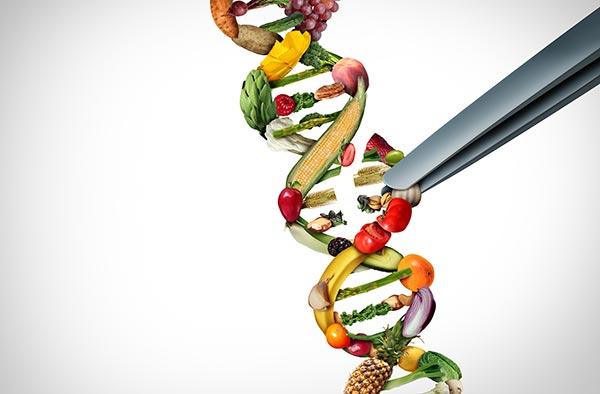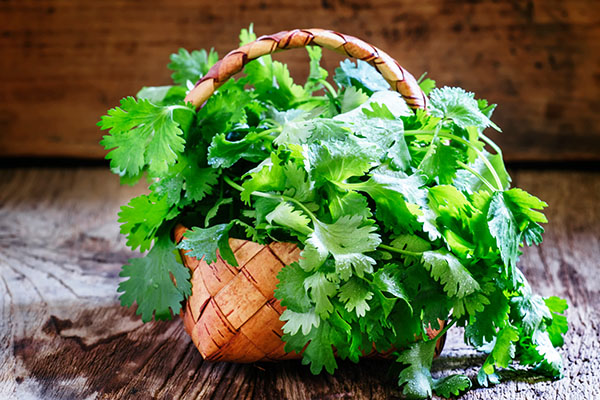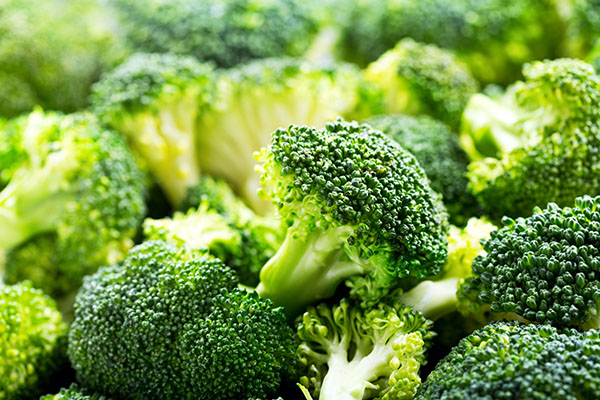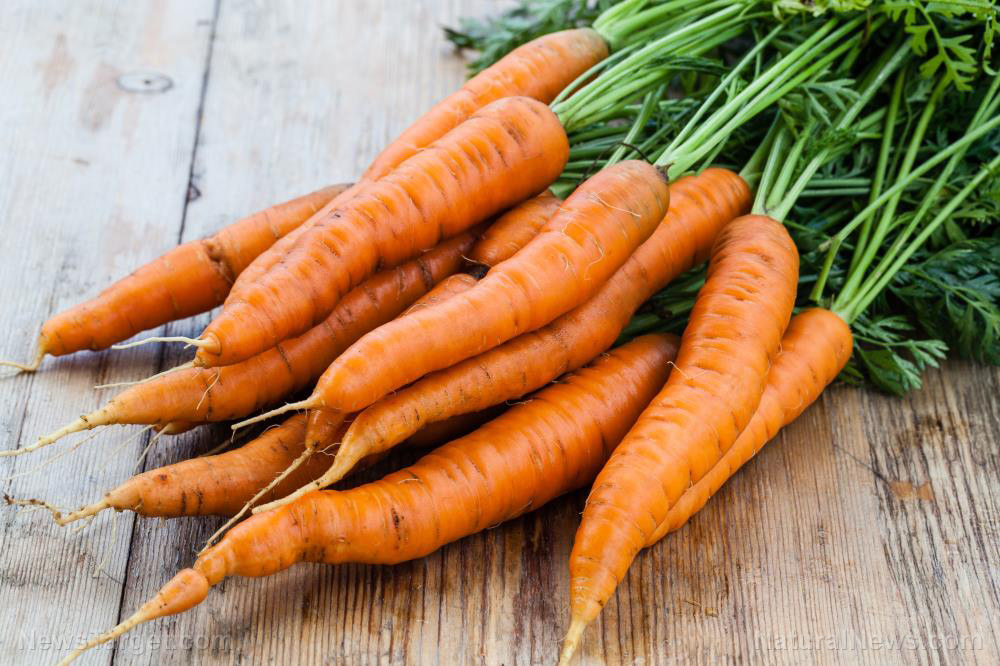Study: Compounds in seaweeds show promise in cancer research
10/18/2023 / By Olivia Cook

Seaweeds can be used as food and treatment for common ailments. They are used to treat boils, dropsy or edema (swelling caused by fluids trapped in the body), fever, hemorrhoids, lumps, orchitis (inflammation of one or both testicles), scrofula (an infection in the lymph nodes in the neck), urination problems and many more.
Now, studies have shown that seaweeds and certain compounds in them show promise when it comes to treating cancer. One of the studies, which documented how people had been saved by seaweeds, was published in the Journal of Applied Phycology.
Another study published in Marine Drugs described seaweeds as a good source of vitamins (A, B1, B2, B9, B12, C, D, E, and K), essential minerals (calcium, copper, fluoride, iodine, iron, magnesium, manganese, phosphorus, potassium, selenium and zinc), dietary fibers and protein.
Moreover, seaweeds have been found to be rich in essential amino acids, polyphenols, polysaccharides, sterols, terpenoids and several other bioactive compounds, which exhibit anticancer, antidiabetic, anti-inflammatory, antimicrobial and antioxidant properties.
Some of the bioactive compounds that have been attributed to the effective treatment of a multitude of conditions, diseases and disorders in various fields of medicine, particularly cancer research include carotenoids like fucoxanthin and zeaxanthin; iodine; phycolloids, including agar, alginate, carrageenan; polyphenols, such as phlorotannins; and polysaccharides, including fucoidan and laminarin.
Seaweeds are a healthy, low-calorie and nutritious food – possessing a low-lipid content, but enriched in polyunsaturated fatty acids. (Related: Supercharge your health with seaweed.)
Seaweeds in the oncology arena
Seaweeds are a rich source of bioactive metabolites whose properties exhibit anti-tumoral and anti-metastatic activities (by preventing the adhesion of tumor cells), including inducing tumor cell apoptosis or cell death, against some types of cancer lines without affecting healthy cells negatively.
Here are the compounds in seaweeds that can help treat cancer, according to research.
Fucoxanthin (brain cancer)
Researchers in the European Union (EU)-funded project GENIALG (GENetic diversity exploitation for Innovative macro-ALGal biorefinery) found that the compound fucoxanthin, a type of carotenoid pigment found in brown seaweeds, also known as sugar kelp (Saccharina latissima) could help treat one of the most common and aggressive forms of malignant brain tumor.
The study found that fucoxanthin inhibits cancer cell groups by itself but also improves the effectiveness of certain anti-proliferative pharmaceutical medicines used in cancer treatment.
“The compound could provide an effective treatment against glioblastoma multiforme (GBM), the most common and aggressive form of malignant brain tumor, with an annual incidence of three to four cases per 100,000 people in Europe,” said Dr. David Baily, director of IOTA Pharmaceuticals.
With an average survival rate of 12 months after diagnosis, Baily added that GBM remains an incurable disease – even with the improvement of knowledge of its genetic causes. He attributed part of the poor prognosis to tumor heterogeneity – different parts of the tumor have different characteristics, so it tends to respond differently to treatment.
As a result, a single treatment may kill some of the cancerous cells, while others continue to grow. Therefore, it is important to find and develop combination therapies that can tackle all parts of the tumor, explained Baily.
Fucoidan (breast cancer)
A study published in the Molecules demonstrated how the compound fucoidan exhibits antioxidant, antiviral, immune-modulatory and anticancer or cancer-preventive activity against a wide range of malignancies. (Related: Seaweed extract outperforms chemo drug in shrinking breast tumors – but without the toxic side effects.)
Fucoidan prompts cell cycle arrest and apoptosis, blocks metastasis and angiogenesis as well and modulates physiological signaling molecules – thereby inhibiting tumorigenesis or the gain of malignant properties in normal healthy cells, following a step-by-step progression that eventually leads to metastasis or the spread of cancer to other parts of the body.
Fucoidan exists mainly in the cell wall matrix of various species of brown seaweed, such as bladderwrack, kombu, limunoii, mozuko and wakame. (Related: Wakame: An iodine-rich seaweed with impressive fat-burning properties.)
Researchers also found various forms of fucoidan in some marine invertebrates, such as sea cucumbers and sea urchins.
Carotenoids (colorectal cancer)
In a study of 893 adults who were tested having colorectal endoscopy, researchers from Japan’s Red Cross Kyoto Daiichi Hospital reported that zeaxanthin and other seaweed carotenoids, such as fucoxanthin and its deacetylated metabolite fucoxanthinol, reduce the incidence of colorectal cancer among Japanese adults.
Researchers noted that men who had higher circulating levels of zeaxanthin had over 30 percent fewer incidence of colorectal cancer and about 50 percent fewer incidence of polyps than those who had lower circulating levels of zeaxanthin.
Phenolic compounds bromophenols and phlorotannins and fucoxanthin (gastric cancer and several others)
Research from the Science University of Tokyo found that seaweed extracts inhibit five different human cancer lines, including gastric cancer.
After testing extracts from 16 different species from the Danish coastlines for free radical scavenging, a study from Denmark’s National Food Institute and the Technical University of Denmark found that their phenolic content and sulfated polysaccharide content enabled them to produce significant antioxidant and radical scavenging effects. The results of this study were published in the journal Food Chemistry.
This has been confirmed by researchers from the Daniel K. Inouye College of Pharmacy at the University of Hawaii at Hilo, who published their findings in Scientific Reports. In the course of studying the anti-cancer effects of seaweeds, they found that phenolic compounds – such as bromophenols and phlorotannins, along with their fucoxanthin content – contribute to an antioxidant effect that prevents different cancer forms.
Visit Anticancer.news for more stories about anticancer food.
Watch this video about the benefits of bladderwrack seaweed.
This video is from the Holistic Herbalist channel on Brighteon.com.
More related stories:
Seaweed found to accelerate excretion of dioxins from the body.
Sodium alginate from seaweed could help with weight loss.
Sources include:
Submit a correction >>
Tagged Under:
alternative medicine, anticancer, cancer treatment, food cures, food is medicine, food science, health science, natural cures, natural health, natural medicine, oncology, phytonutrients, seaweeds
This article may contain statements that reflect the opinion of the author
RECENT NEWS & ARTICLES
COPYRIGHT © 2017 VEGGIE NEWS




















